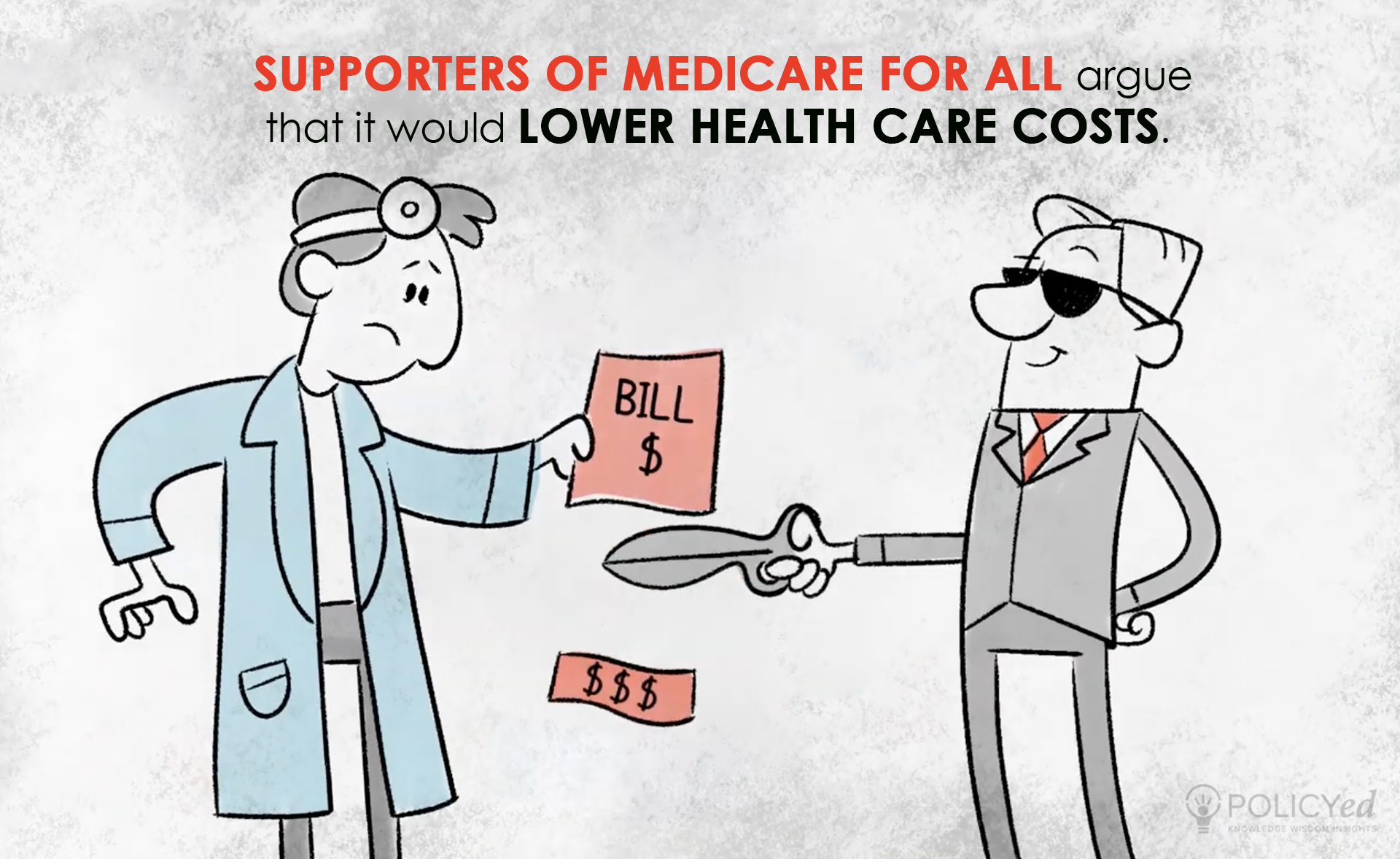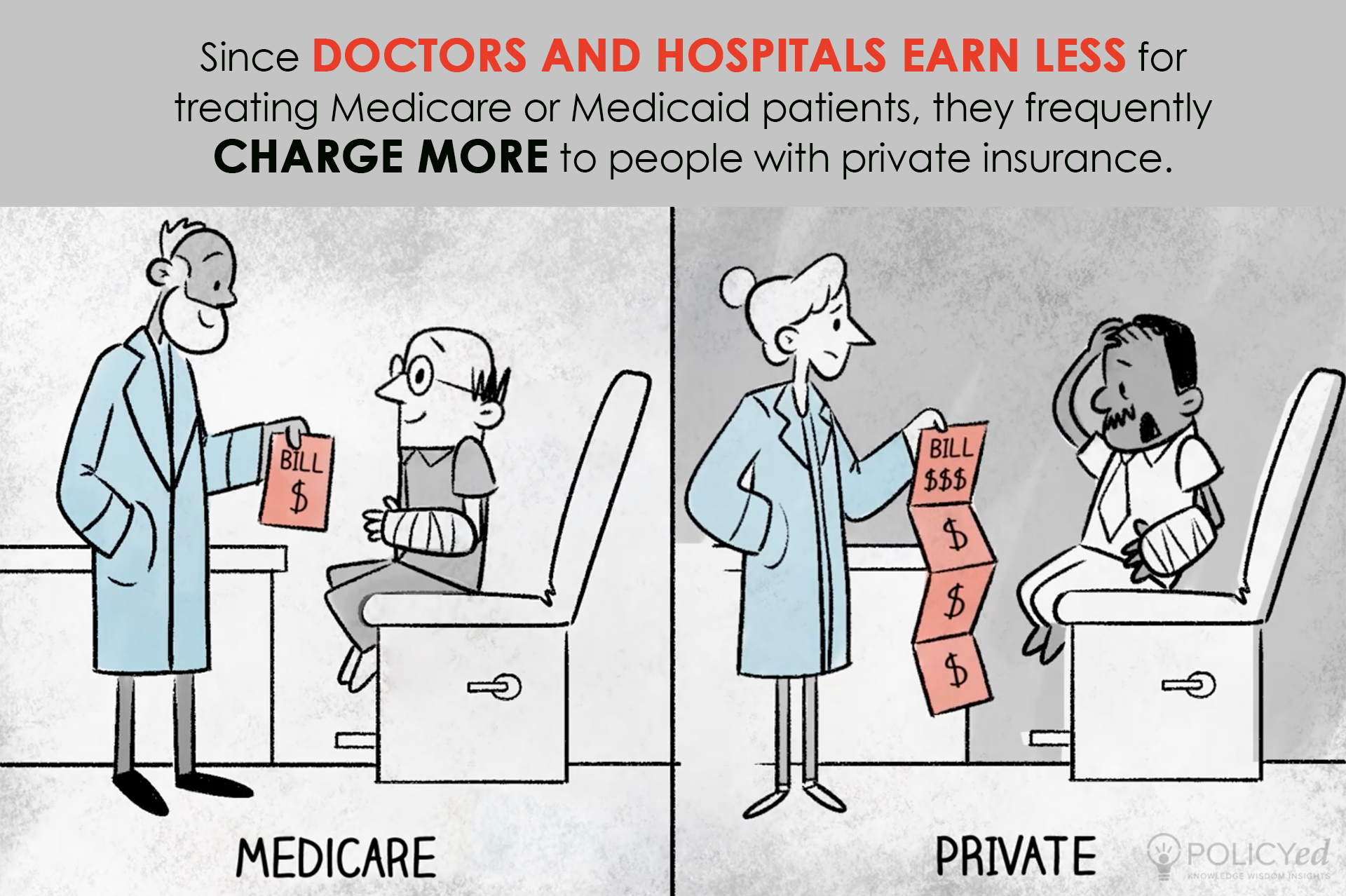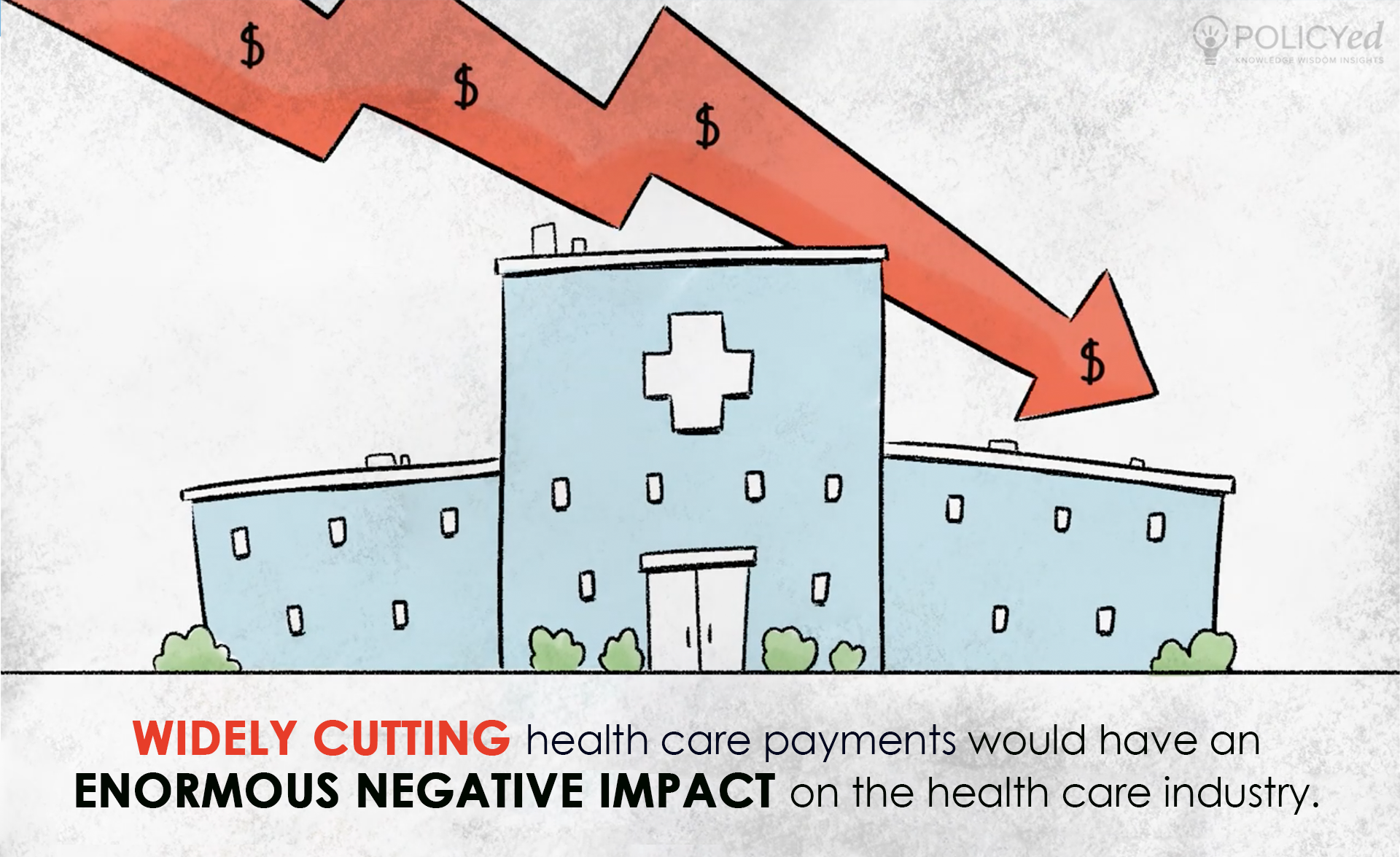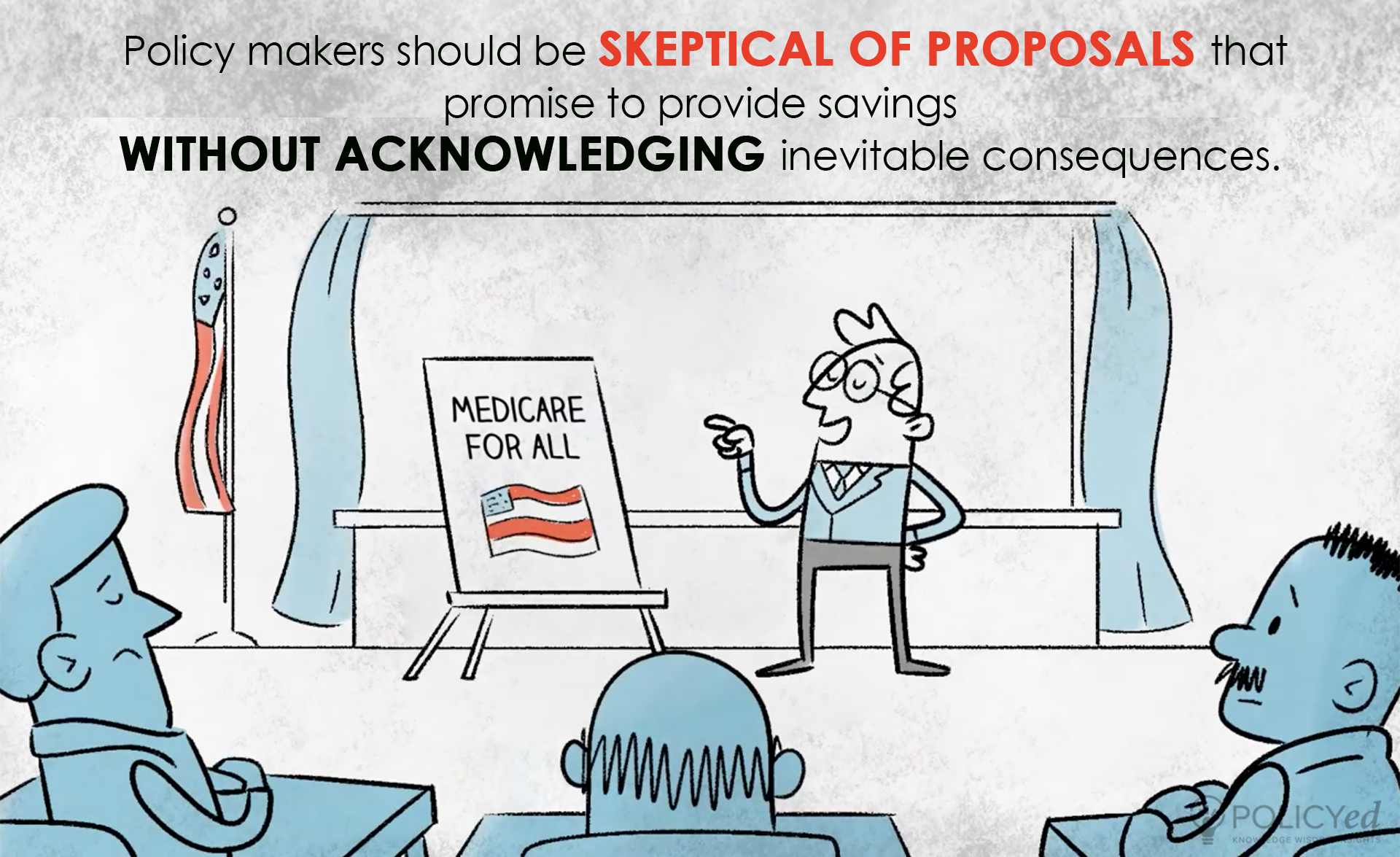Key Facts
Not So Simple
Currently, Medicaid and Medicare pay health care providers at lower rates than private insurance does. Supporters of Medicare for All argue that by moving to a single-payer system the government could force doctors and hospitals to accept lower payments than they earn now, lowering health care costs for everyone. Unfortunately, this isn’t as simple as it sounds.
Defining the Problem
Because doctors and hospitals earn less for treating Medicare or Medicaid patients, they frequently charge more to people with private insurance. This “cross-subsidy” makes it seem like lower Medicare and Medicaid reimbursement rates could save the country billions of dollars. In reality, somebody is always paying the difference.
Weighing the Consequences
Single-payer systems would result in fewer health care providers, longer wait times, and lower-quality health care. There are many other ways to lower the cost of health care. Policy makers should be skeptical of proposals that promise to provide savings without acknowledging inevitable reductions in both access to providers and the quality of care.




